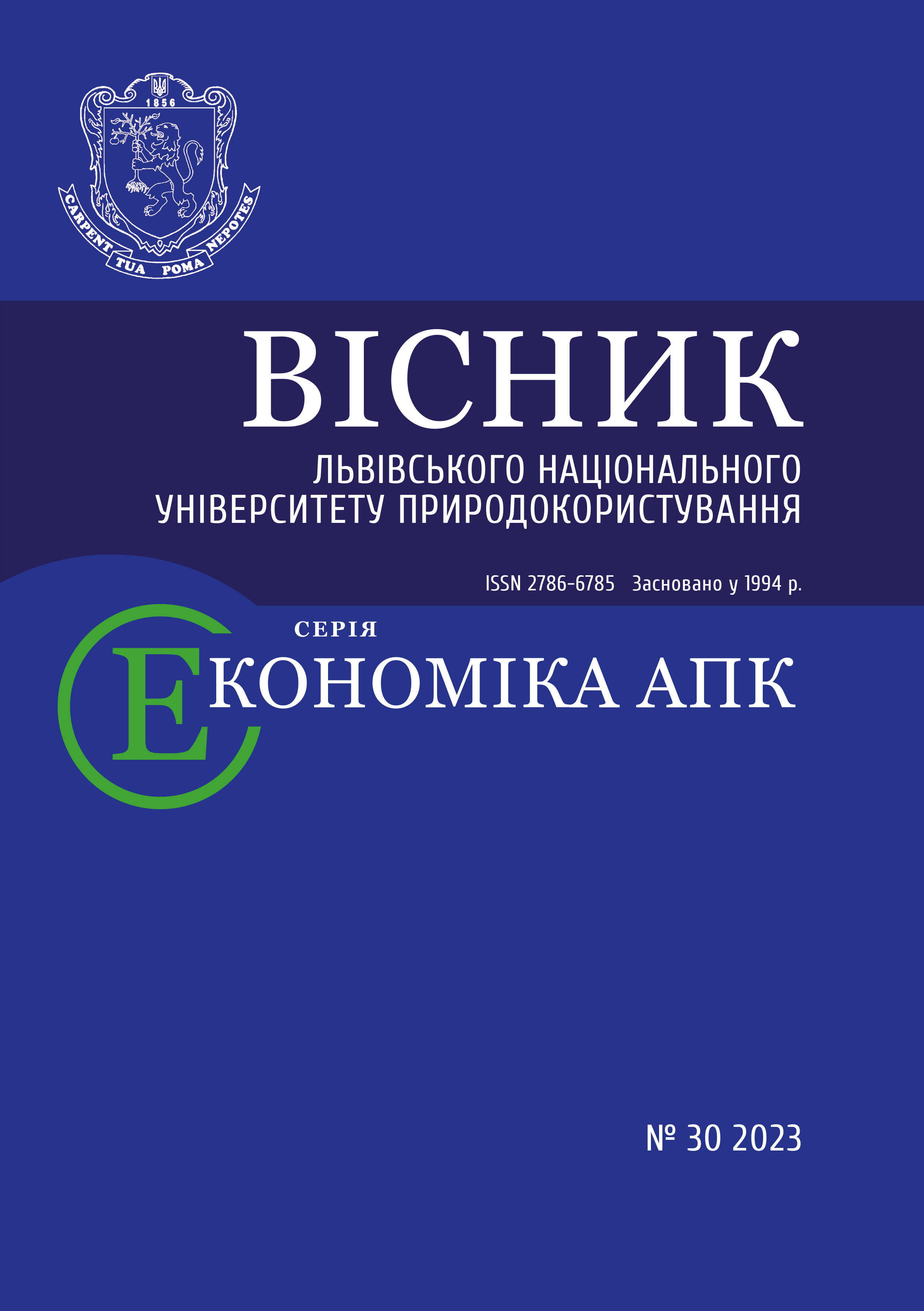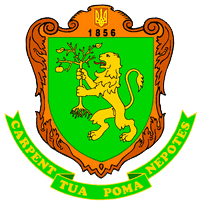GLOBAL EXPERIENCE OF EFFICIENT AGRICULTURAL WASTE MANAGEMENT
DOI:
https://doi.org/10.31734/economics2023.30.118Keywords:
agro-industrial waste management, utilisation, recycling, processing technologyAbstract
Agro-industrial production can generate a variety of wastes, each having different components and properties. Some of the most common sources of agro-based waste include crop residues, animal waste, residues from feed production, waste from biofuel production, waste from production of fertilisers and crop protection products.
After harvesting, there may be plant residues that are not suitable for consumption or use. Animal slaughter produces a large amount of waste, such as bones, skins, organs, etc. Production of animal feed can generate waste, such as stalks, straws, and grain husks. Biofuel production from grain crops can lead to generation of waste in the form of residues from biomass processing. Processing and preservation of food produce waste, such as shells, corks, seeds, etc. After products and materials are used, their residues can become waste that needs to be disposed and removed. Production of fertilisers and crop protection products can generate waste, such as processed liquids, plant material residues, etc.
All these sources may differ depending on the type of agro-industrial activity and equipment used.
Agro-industrial waste management is an important task for ensuring environmental safety and conservation of natural resources. The main goal of agro-industrial waste management is to reduce waste and use it as a resource for producing new products or energy. Agro-industrial waste management presupposes planning, organization, control, and implementation of measures for collecting, processing, use and disposal of waste produced during agro-based activities.
The work explores foreign experience of the agro-industrial waste management in such countries as Germany, Switzerland, Sweden, the USA, China, and Japan, in terms of the possibility of its further implementation in Ukraine. The article dwells on the peculiarities of effective management of agro-industrial waste for each country.
The article summarises the conceptual foundations of the agro-industrial waste management system abroad, which allowed to identify common features inherent in almost all developed countries, namely: preference for innovative methods of waste disposal, introduction of recycling programmes, and reduction of the processes that have a heavy load on the environment.
References
Biobased Delta. URL: https://biconsortium.eu/membership/fullmembers/biobased-delta (Last accessed 10 March 2023).
Bodenschutzprogramm zügig umsetzen gegen Boden-Erosion – Verlust und-Verdichtung. URL: https://www.bundmecklenburg vorpommern.de/service/presse/detail/news/bodenschutzprogramm-zuegig-umsetzen-gegen-boden-erosion-verlust-und-verdichtung/ (Last accessed 14 March 2023).
Disposal of solid household waste — the experience of Switzerland. 2014. URL: https:// studway.com.ua/swissexperience/ (Last accessed 06 February 2023).
Dubnevych Yu. V., Popivniak R. B., Dubnevych N. Yu. Implementation of the circular economy concept in Ukraine. Agrarian Economy, 2020. Vol. 13, No 3–4. P. 27–32.
Dubnevych Yu. V., Voinycha L. Y. Waste management: Ukrainian model of recycling. URL: https://sci.ldubgd.edu.ua/bitstream/ (Last accessed 10 March 2023).
Energy Concept 2050 for Germany with a European and Global Perspective. URL: https://www.fvee.de/publikationen/energiekonzept-2050/ (Last accessed 13 March 2023).
Hoe draagt biovalue bij aan een schonere wereld? URL: Https://biovalue.nl/?Gclid=cjwkcaiaxvgfbhb-eiwampakqgckhehe4dd-mx7eoycdu2f4dl9oeb0yafhaiiats751nzfpzime7rocb9gqavd_bwe (Last accessed 13 March 2023).
Kolodiichuk I. A. Formation of an effective waste management system in Ukraine. Socio-economic problems of the modern period of Ukraine. 2018. Iss. 4. P. 85–89.
Navrotskyi R. L. Experience of the European Union countries in the field of safe management of solid household waste. Economy and society. 2016. No 7. P. 621–625.
PIMA Residuos. URL:https://www.miteco.gob.es/es/cambio-climatico/planes-y-estrategias/PIMA-Residuos.aspx (Last accessed 15 March 2023).
Recycling international. URL: https://recyclinginternational.com (Last accessed 14 March 2023).
Régimen especial de agricultura, ganadería y pesca: qué es y a quién aplica. URL: https://getquipu.com/blog/regimen-especial-agricultura-ganaderia-y-pesca/ (Last accessed 14 March 2023).
Rotterdam Waste-to-Chemicals consortium mull Waste-to-Jet instead. URL: https://bioenergyinternational.com/rotterdam-waste-to-chemicals-consortium-mull-waste-to-jet-instead/ (Last accessed 13 March 2023).
The Government approved the National Strategy for Waste Management in Ukraine until 2030. URL: https://www.kmu.gov.ua/npas (Last accessed 13 March 2023).
The Environmental Quality Incentives Program (EQIP) is NRCS’ flagship conservation program that helps farmers, ranchers and forest landowners integrate conservation into working lands. URL: https://www.nrcs.usda.gov/programs-initiatives/eqip-environmental-quality-incentives (Last accessed 01 March 2023).
Tokarchuk D. Managing the efficient use of agricultural waste for biogas production. Accounting and Finance. 2018. Iss. 3. P. 133–139.
Ukraine adopts Sweden’s experience in generating energy from waste. 2019. URL: https://saee.gov.ua/uk/ news/3182 (Last accessed 28 February 2023).


